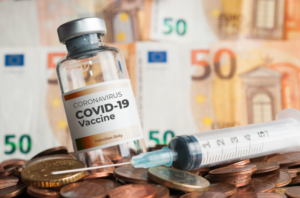
As part of the efforts to ensure that large portions of the population get vaccinated to protect public health, several behavioral science strategies have been deployed. One strategy whose effectiveness has been debated is providing financial incentives for pursuing vaccination. A pilot study on the effects of guaranteed financial incentives for getting the COVID-19 vaccine in North Carolina was recently conducted, and the results were published in a research letter in JAMA Internal Medicine.
The 2-week pilot program involved guaranteeing a $25 cash card to those who received a first dose of the COVID-19 vaccine at a participating site or who drove someone else to get their first dose. Overall, the program provided cash cards to 2890 people receiving the vaccine and 1374 people who drove vaccine recipients to the vaccination sites.
An analysis of the pilot program found that the program was associated with a slowing in the decline of vaccination rate in North Carolina as well as with a more equitable distribution of those who were vaccinated. In particular, the authors argue that the program helped to overcome vaccination barriers that prevent blacks, Hispanics, and low income individuals from getting vaccinated against COVID-19.
These results suggest that financial incentives may help motivate people to get vaccinated, both by financially rewarding them and by promoting friends and acquaintances to encourage others to get vaccinated. Nonetheless, the generalizability of these results from North Carolina to other parts of the country and world will require further research, and it is possible that the most effective behavioral science interventions to encourage vaccination may vary based on several factors including the location of the program.
Reference
Wong CA, Pilkington W, Doherty IA, et al. Guaranteed Financial Incentives for COVID-19 Vaccination: A Pilot Program in North Carolina. JAMA Internal Medicine. Published online October 25, 2021. doi:10.1001/JAMAINTERNMED.2021.6170
